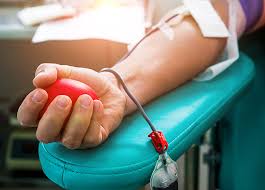
A prominent health advocacy organisation in Zimbabwe has urged the government to introduce subsidies for blood testing and transfusion services, saying current fees are unaffordable for many vulnerable patients.
At a recent press briefing in Harare, the Zimbabwe Health Lobby Group highlighted that diagnostic and transfusion costs—ranging from US$25 for screening a single blood unit to over US$50 for full transfusion treatment—present a significant financial barrier to patients, particularly expectant mothers, children with severe anaemia, and individuals undergoing surgery.
“Blood services should not be the preserve of those who can afford it,” a spokesperson for the lobbying group stated. “Subsidies would ease the burden on families and save thousands of lives annually.”
The group’s proposal includes fully subsidising blood screening and transfusion services for vulnerable groups and introducing a sliding scale fee system for others. They argue the initiative would help reduce preventable fatalities caused by delayed or insufficient blood availability, reduce hospital stays, and improve maternal and child health outcomes.
Officials from the Ministry of Health were reported as receptive to the idea, with one senior official acknowledging that the current fee structure is unsustainable and preventing many from accessing care. He also noted government plans to explore budget reallocations or form partnerships with international donors to support the subsidy.
Healthcare practitioners support the advocacy group’s call, noting that delays in accessing affordable blood services often result in complications including obstetric hemorrhage and severe anemia among children. According to hospital records, up to 70% of emergency blood transfusion patients cite cost as a delaying factor, increasing mortality risks.
Under the current system, while national blood collection remains free and managed by the National Blood Service Zimbabwe, downstream costs like testing, screening, issuing, and administration are passed on to patients. This has provoked calls for an overhaul to ensure equitable, timely, and affordable access.
The lobby group has requested a meeting with government representatives next month to discuss concrete proposals, cost estimates, and phased implementation strategies. They have also offered to collaborate with cross-sector partners to support outreach and public awareness campaigns.
As Zimbabwe continues striving toward universal health coverage, the subsidy proposal has drawn strong public interest. Supporters emphasise that making blood services affordable is both a moral imperative and a pragmatic step toward reducing health inequities especially for the country’s most vulnerable populations.

